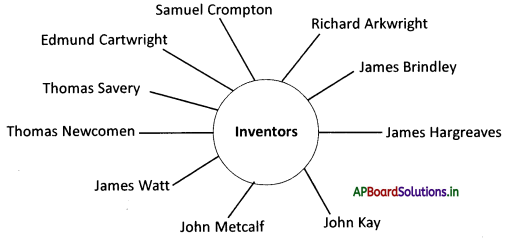Students can go through AP State Board 9th Class Social Studies Notes Chapter 15 Industrialisation and Social Change to understand and remember the concept easily.
AP State Board Syllabus 9th Class Social Studies Notes Chapter 15 Industrialisation and Social Change
→ The transformation of industry and the economy in Britain between the 1780s and the 1850s is called the ‘first industrial revolution.
→ Industrialization led to greater prosperity for some.
→ Britain was the first country to experience modern industrialization.
→ On the basis of iron, coal, and textiles Britain built up a type of civilization, which has been copied all around the world.
→ Britain was lucky in possessing excellent coking coal and high-grade iron ore in the same basins or even the same seams.
→ Steam power was first used in mining industries.
→ The need to transport raw materials and manufactured products led to the improvement of roads and the digging of canals in England.
→ A survey in 1842 revealed that the average lifespan of workers was lower than that of any other social group in cities.
→ While industrialization began early in England, in the 18th century, it was not until the 1850s and 1870s that industrial production became prominent in Germany and France.
→ Prussia exploited its rich coalfields, and iron deposits in order to create a flourishing steel industry.
![]()
→ Industrialization: It is the period of social and economic change that transforms a human group from an agrarian society into an industrial one.
→ Smelting: Iron is extracted as pure liquid metal from the ore by a process called smelting.
→ Industrial Revolution: The complex of socio-economic changes, such as the ones that took place in England in the late 18th century, that are brought about when extensive mechanization of production systems results in a shift from home-based hand manufacturing to large-scale factory production.
→ Steam Power: Steam power propelled first Britain and then the world into the industrial revolution and into increasing mechanization of all aspects of human endeavor, warfare of course included,
→ Hydraulic Power: Hydroelectric power
→ Mechanization: Using a machine to do something that used to be done by hand.
→ Transformation: A marked change. as in appearance or character, usually for the better.
![]()
→ Evaporation: The process by which water changes from a liquid to a gas.
